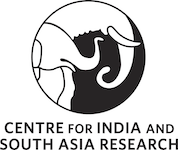Pakistan's ever-changing geo-political winds: China's Belt and Road Initiative in Historical Context
-
Presenters: Aasim Sajjad Akhtar, Political Economy at the National Institute of Pakistan Studies, Quaid-i-Azam University; Sadia Tasleem, Department of Defence and Strategic Studies at Quaid-i-Azam University in Islamabad; Moderator: M.V. Ramana, Director, Liu Institute for Global Issues; Simons Chair in Disarmament, Global and Human Security, School of Public Policy and Global Affairs, UBC; Faculty Member of Common Room at Green College
Online presentation via Zoom (click here to join)
Wednesday, November 25, 7:30 pmin the series
Green College Encounters -
In this online encounter, guided by the moderator, the presenters will explore the historical context of China's Belt and Road Initiative in the context of Pakistan.
The China-Pakistan Economic Corridor (CPEC), the flagship project of China’s Belt and Road Initiative, will usher in more than US$60 billion of investment for Pakistan. With its emphases on road construction from the Pakistan-China border in the north to the Gwadar Port in the insurgency-wracked Balochistan province in the south, and on power generation and information technology, CPEC has been hailed as a ‘game-changer’ by planners and strategists in Pakistan. There are signs, however, that CPEC is as much a strategic intervention as a developmental one, and will buttress the power of Pakistan’s preeminent political and economic power, the army. There are concerns, too, that longstanding regional conflicts within the country will be exacerbated, and about negative ecological impacts.
Presented in partnership with the UBC School of Public Policy and Global Affairs and the Centre for India and South Asia Research.
Aasim Sajjad Akhtar is Associate Professor of Political Economy at the National Institute of Pakistan Studies, Quaid-i-Azam University. He was previously at the Lahore University of Management Sciences (LUMS). Prof. Akhtar works on diverse subjects such as state theory, informality, colonial history, and social movements. He has published widely in journals such as Third World Quarterly, Journal of Contemporary Asia, Journal of Peasant Studies and Critical Asian Studies. He is also the author of three books, most recently The Politics of Common Sense: State, Society and Culture in Pakistan (Cambridge, 2018). He also writes a syndicated column for Pakistan’s newspaper-of-record, DAWN. Alongside his academic pursuits, Prof. Akhtar has also been closely affiliated with political and social movements in Pakistan for more than two decades.
Sadia Tasleem is currently a PhD student at UBC and a lecturer at Quaid-i-Azam University’s Department of Defense and Strategic Studies in Islamabad, Pakistan. As a Robin Copeland Memorial Fellow for Nonproliferation from 2014 to 2015, she investigated the prospects of “Creating a Constituency for Unilateral Nuclear Arms Restraint in Pakistan.” She regularly delivers lectures on strategic stability and nuclear deterrence to senior officers at Pakistan Air Force and Pakistan Navy. She has done extensive research on various aspects of Strategic Stability, Nuclear Learning and the implications of Knowledge Diffusion as a core member of the Program on Strategic Stability Evaluation (POSSE). Presently, she is a core member of Asia-Pacific Leadership Network for Non-Proliferation and Disarmament. Previously, she worked as a senior research scholar at the Institute for Strategic Studies, Research and Analysis at the National Defense University; a research associate at the International Islamic University; and a lecturer at the Department of International Relations at the National University of Modern Languages in Islamabad.
M. V. Ramana is Professor and Simons Chair in Disarmament, Global and Human Security at the School of Public Policy and Global Affairs (SPPGA), University of British Columbia. His research interests are in the broad areas of international security and energy supply, with a particular focus on topics related to nuclear energy and fissile materials that can be used to make nuclear weapons. He combines technical skills and interdisciplinary methods to address policy relevant questions related to security and energy issues.


ZOOM Joining Details
Passcode: 720656 One tap mobile +16132093054,,66067246685#,,,,,,0#,,720656# Canada +16473744685,,66067246685#,,,,,,0#,,720656# Canada Dial by your location +1 613 209 3054 Canada +1 647 374 4685 Canada +1 647 375 2970 Canada +1 647 375 2971 Canada +1 778 907 2071 Canada +1 204 272 7920 Canada +1 438 809 7799 Canada +1 587 328 1099 CanadaMeeting ID: 660 6724 6685 Passcode: 720656 Find your local number: https://ubc.zoom.us/u/gei4uRpvuI

-
Unless otherwise noted, all of our lectures are free to attend and do not require registration.
BC
Canada
Custom Lecture Fields
|